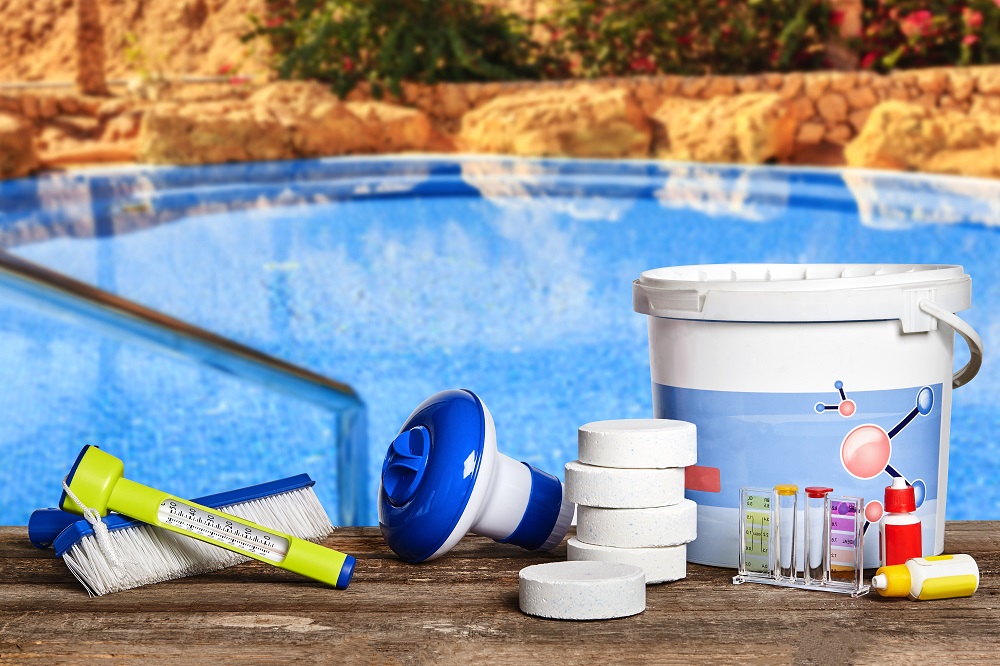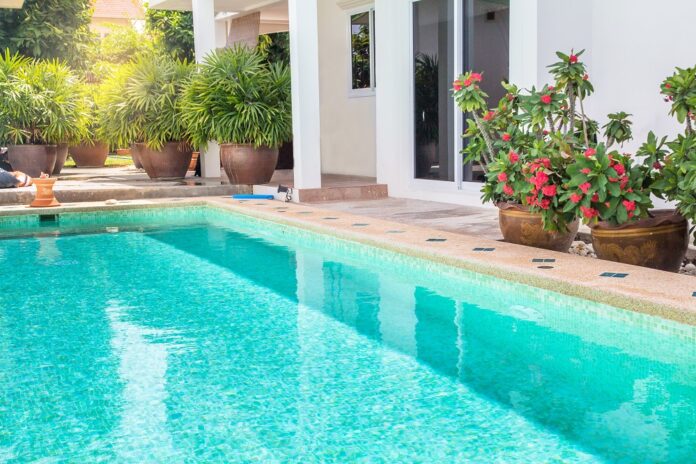Cleaning your swimming pool is necessary, particularly after summer when the water becomes murky and off-putting to look at.
For many swimming pool owners, it’s a great feeling to have their own backyard oasis where everyone can relax and cool off on a hot summer day. However, your happiness will fade away once your swimming pool stops looking crystal clear and starts looking like a pond.
Fortunately, there are maintenance tips you can try to keep your swimming pool clean and inviting all year round, and they include the following:
1. Do Regular Pool Cleaning
Simply maintaining your swimming pool’s filter and chemistry as well as skimming the water won’t be enough to keep your pool clean. As a swimming pool owner, you have to take on more strenuous tasks if you want your pool crystal clear all the time.
Such tasks may include scrubbing the walls of the pool, vacuuming the pool, and shocking it. Doing these regularly can benefit your pool in the long run. However, make sure to get the right swimming pool cleaning supplies from a reliable store to get the best results when cleaning your pool.
2. Aim For Optimal pH Levels
Your pool’s pH level must be kept between 7.2 and 7.8. The optimal level is 7.4, which creates a safe and comfortable experience for swimmers. If your pool’s pH level is lower than this, it means you’ll have to add less chlorine to the water. However, once the pH level increases, it causes the chlorine to be less active. For instance, if the pH level is at 8.0, the chlorine is about 10% effective or active.
If possible, avoid adding more chlorine and control the pH level properly so you can use less of the chemical. There are many methods and substances available for pH control purposes. If you don’t know which ones to consider, ask a maintenance professional at a pool store in your area to get recommendations on how to keep pH levels in check for you to make the most of the benefits of having your own swimming pool.
3. Consider Using A Pool Cover
Pool covers are something that many owners have but don’t consider necessary. They’re good for maximizing safety and retaining heat. For instance, if you’re living in an area that’s surrounded by wildlife, having a pool cover can be a lifesaver in case a creature ends up in your backyard.
4. Ensure That Your Filter Is Working Properly
The purpose of a swimming pool filter is to clean the water around the clock. Typically, if something’s wrong with the filter, you’ll notice it immediately. However, think of your swimming pool as a big fish tank. It’s crucial to ensure that your filter is clean, not clogged, and up to date.
If the filter of your swimming pool is compromised in any way, you should take action as soon as possible. Fixing it may hurt your wallet, but doing so will keep your swimming experience safe while allowing you to save more time when performing regular pool maintenance.
5. Run The Pump
The pump of your swimming pool needs to operate 24/7 so the water doesn’t stagnate. However, to save on energy costs, most pool owners run their pumps less often. If you’re one of them but you’re also after crystal clear water, you should run your pump for at least 12 hours daily. If possible, use a programmable timer to ensure that your pool’s pump circulates the water sufficiently.

6. Use A Skimmer Often
No matter how expensive your filter is, it won’t catch every piece of debris in your swimming pool. That’s why it’s essential to use a skimmer often to remove the dirt from your swimming pool more effectively. This is especially true for bigger items that your filter can’t remove. With a skimmer, you can manually get rid of sticks, leaves, insects, and some debris in the water.
Depending on the location of your swimming pool, you may have to use a skimmer at least once a day. Pools near trees often require more frequent skimming due to fallen leaves and branches.
Most swimming pools have a built-in skimmer basket. If yours does, make sure to clean it once a week to ensure that it does its job. Typically, you can access skimmer baskets on the deck. Open the panel and get rid of the basket’s contents as needed.
7. Maintain Consistent Chemical Levels In Your Pool
Chemical levels are among the crucial facets of pool maintenance. If the water is imbalanced, it’ll look murky, your pool will become a breeding ground for bacteria, and you may experience skin and eye irritation. To avoid those issues, you must test the water regularly.
Basically, these are the various chemical levels that should be considered when it comes to swimming pool maintenance:
- Calcium Hardness – If this is at an appropriate level, it can prevent plaster damage. Aim for 220 to 350 ppm, but if your pool has vinyl siding, you’ll have to aim for a lower level.
- Total Alkalinity – This helps keep the water’s pH level balanced. The total alkalinity level of your pool must be within 60 to 120 ppm.
- Free Chlorine – It acts as the pool’s sanitizer to keep the water safe and free of germs.
- Cyanuric Acid – It protects the chlorine from sunlight and helps you determine the free chlorine level required. The perfect reading for an outdoor pool is 30 to 50 ppm.
Testing the water is simple—just purchase some testing kits from a local pool store. Depending on the results, adjust the levels of the previously mentioned chemicals to achieve a perfect balance. When all the chemicals are balanced properly, the water will be crystal clear, leave only a small amount of residue on the skin, and have no scent.
Conclusion
Keeping a crystal clear swimming pool all year long may seem impossible. But once you follow all of the maintenance tips above, you’ll be able to maintain your pool’s cleanliness with ease. If you don’t have a lot of free time, you can always let pool experts do the job for you since they’re properly equipped and well trained.


















